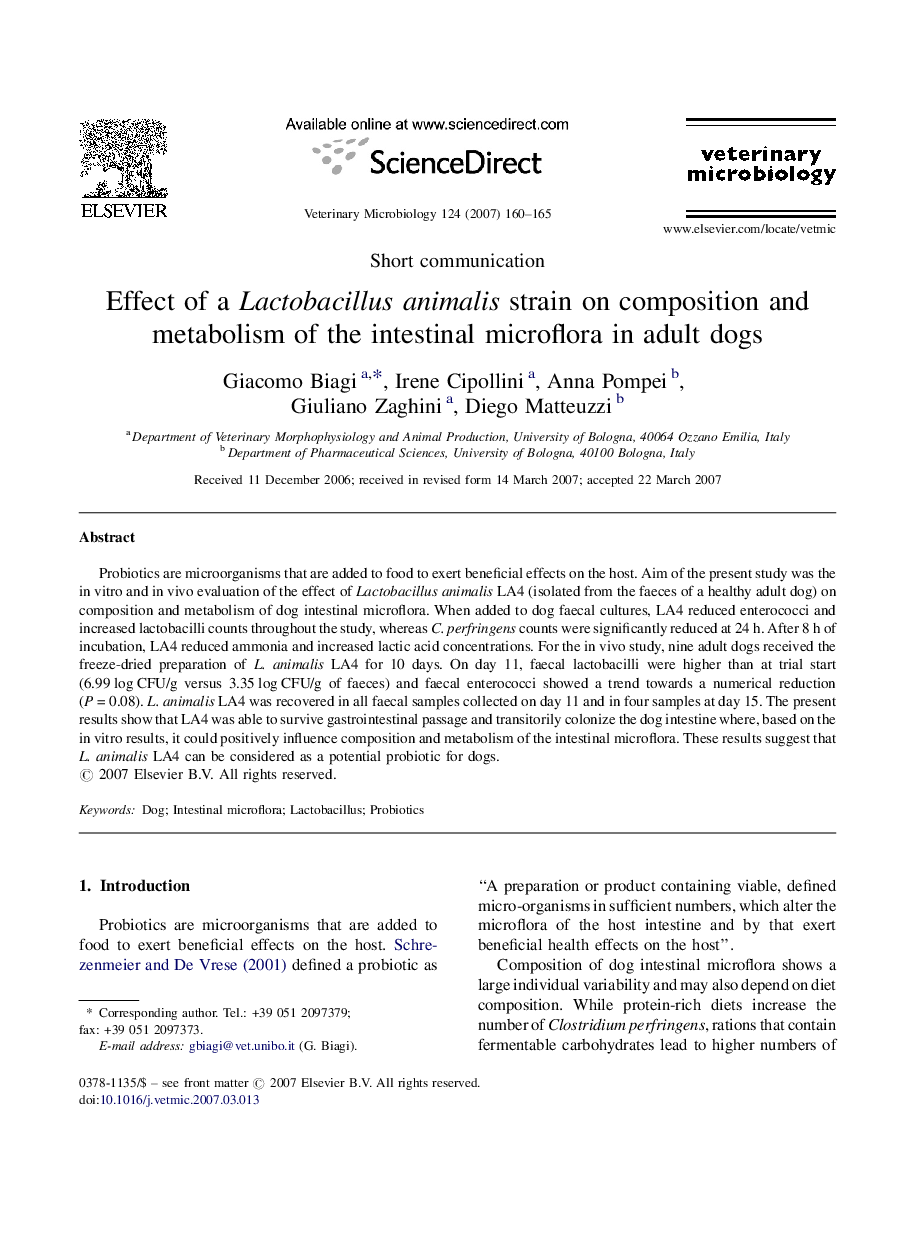| Article ID | Journal | Published Year | Pages | File Type |
|---|---|---|---|---|
| 2469232 | Veterinary Microbiology | 2007 | 6 Pages |
Probiotics are microorganisms that are added to food to exert beneficial effects on the host. Aim of the present study was the in vitro and in vivo evaluation of the effect of Lactobacillus animalis LA4 (isolated from the faeces of a healthy adult dog) on composition and metabolism of dog intestinal microflora. When added to dog faecal cultures, LA4 reduced enterococci and increased lactobacilli counts throughout the study, whereas C. perfringens counts were significantly reduced at 24 h. After 8 h of incubation, LA4 reduced ammonia and increased lactic acid concentrations. For the in vivo study, nine adult dogs received the freeze-dried preparation of L. animalis LA4 for 10 days. On day 11, faecal lactobacilli were higher than at trial start (6.99 log CFU/g versus 3.35 log CFU/g of faeces) and faecal enterococci showed a trend towards a numerical reduction (P = 0.08). L. animalis LA4 was recovered in all faecal samples collected on day 11 and in four samples at day 15. The present results show that LA4 was able to survive gastrointestinal passage and transitorily colonize the dog intestine where, based on the in vitro results, it could positively influence composition and metabolism of the intestinal microflora. These results suggest that L. animalis LA4 can be considered as a potential probiotic for dogs.
